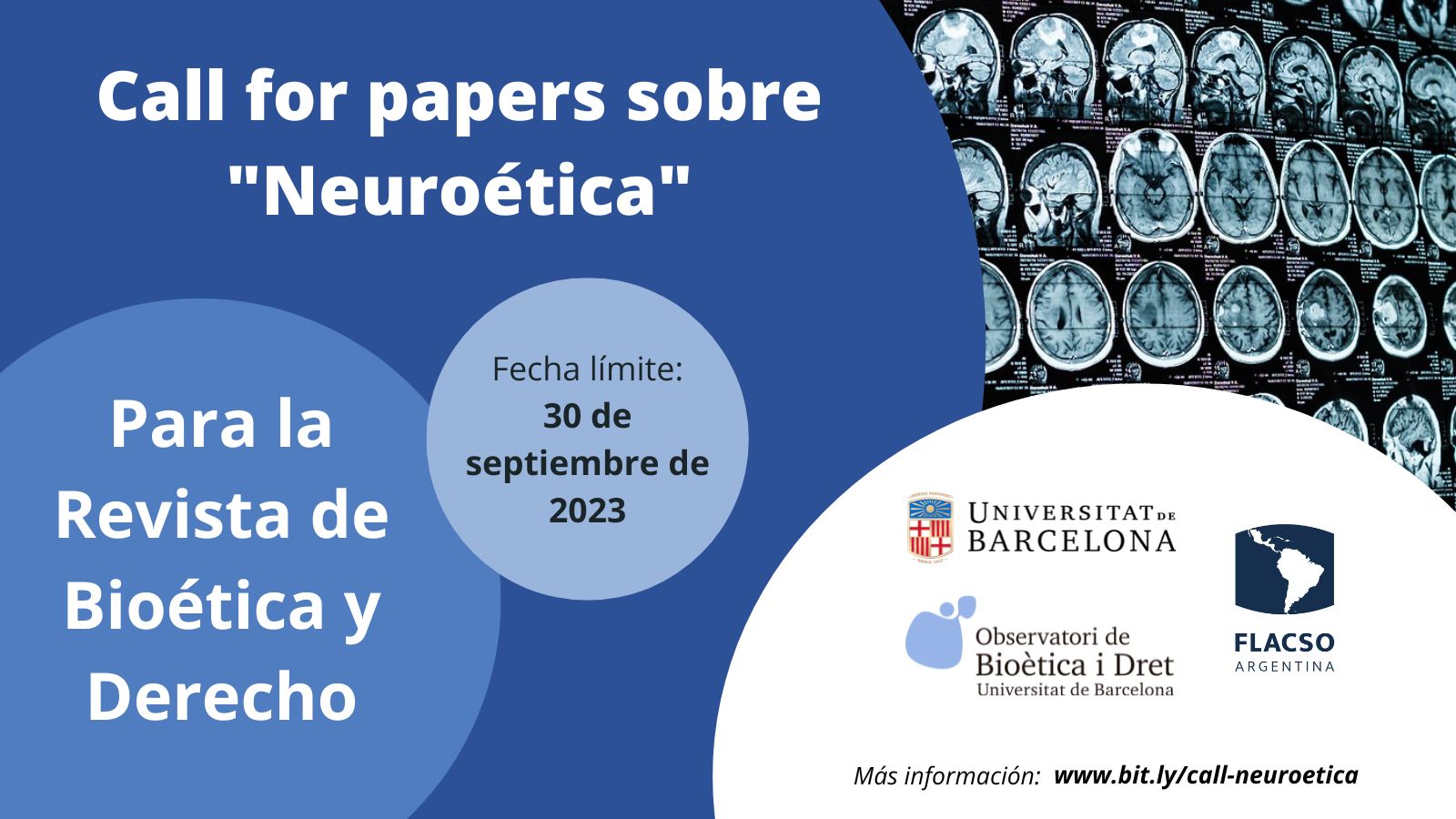The Bioethics and Law Obs.
Master in Bioethics and Law
UNESCO Chair in Bioethics
Contact
- Bioethics and Law Observatory
- UNESCO Chair in Bioethics
- University of Barcelona
- Faculty of Law
- Ave. Diagonal, 684
- 08034 Barcelona
- (+34) 93 403 45 46
- obd.ub@ub.edu
- Master in Bioethics and Law
- (+34) 93 403 45 46
- master.bd@ub.edu
Call for papers on "Neuroethics" for the Revista de Bioética y Derecho

In the last few years, the development of technologies associated with supercomputers and the processing of large databases has shown that functional research on the human brain is feasible and that processes of intervention and functional modification will continue to make inroads in the clinical setting and beyond.
The vertiginous progress in understanding the functionality of neural networks, the construction of artificial intelligence models, have already had a major impact on health and offer future possibilities for modulation, modification, decoding-reading and perhaps the production of logical intelligences that could at least compete with human intelligence.
The journal will accept only original papers written in Spanish, Catalan, French, English, Portuguese or Italian, with a maximum length of 6,000 words (excluding abstract, keywords, notes, references, bibliography, funding). The file must be sent in MS Word format, font Cambria or Arial 12, 1.5 spaced, thoroughly following the guidelines for authors.
-
Deadline for submissions: September 30, 2023 (1 p. m. CET)



